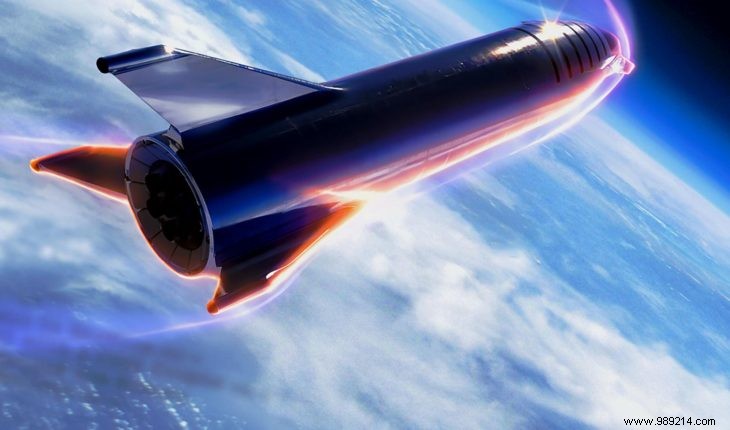In collaboration with private companies, Japan is preparing the development of intercontinental spacecraft connecting the main cities of the world in two hours. In any case, this is what a recent report indicates.
On May 12, the Japanese Ministry of Education, Culture, Sports, Science and Technology unveiled an incredibly ambitious plan. The idea would be to offer ships or rockets capable of transporting us to any point on the planet in less than two hours by the early 2040s , provided you have the means to land, of course.
According to The Mainichi, the ministry also predicts that the market for intercontinental ships could reach around 5 trillion yen (about 38 billion euros) in about twenty years.
Ten years ago, it was hard to imagine a rocket landing. Now, the idea of spaceships as everyday means of transport twenty years from now doesn't seem so outlandish, especially since the idea of a "point-to-point" mode of space transport has never been so concrete. .
A recent document published indeed suggests that the US Air Force could rely on SpaceX's Starship to deliver Cargo to Earth in record time. In 2017, Elon Musk also briefly mentioned the development of an interplanetary rocket system offering manned trips to Earth for the same price as an economy class plane flight.
In this report (which you can read here, if you are fluent in Japanese), the ministry offers a quick roadmap to serve this ambitious agenda.

The ministry would consider two types of spacecraft. The first would take off and land like an airplane on a runway (think American shuttles). The other could operate vertically, like a rocket (think Starship).
To develop its project, Japan would aim to halve the costs of the H3 (about 37 million euros), a launcher developed by the Japanese space agency (JAXA), whose first flight is scheduled for this year. To do this, the country plans to reuse parts. Enough to stimulate Japan's competitiveness on the world aerospace scene, and prepare for the development of a successor to the H3 which will be fully reusable from the beginning of the 2030s according to the report.
Once established, the technology will be shared with the private sector in the hope that companies can exploit it to develop these famous means of intercontinental space transport.
We don't yet know if this project will see the light of day. The report will indeed have to be approved (or not) before its inclusion in the Japanese space policy plan. However, a decision could be made in a few weeks.